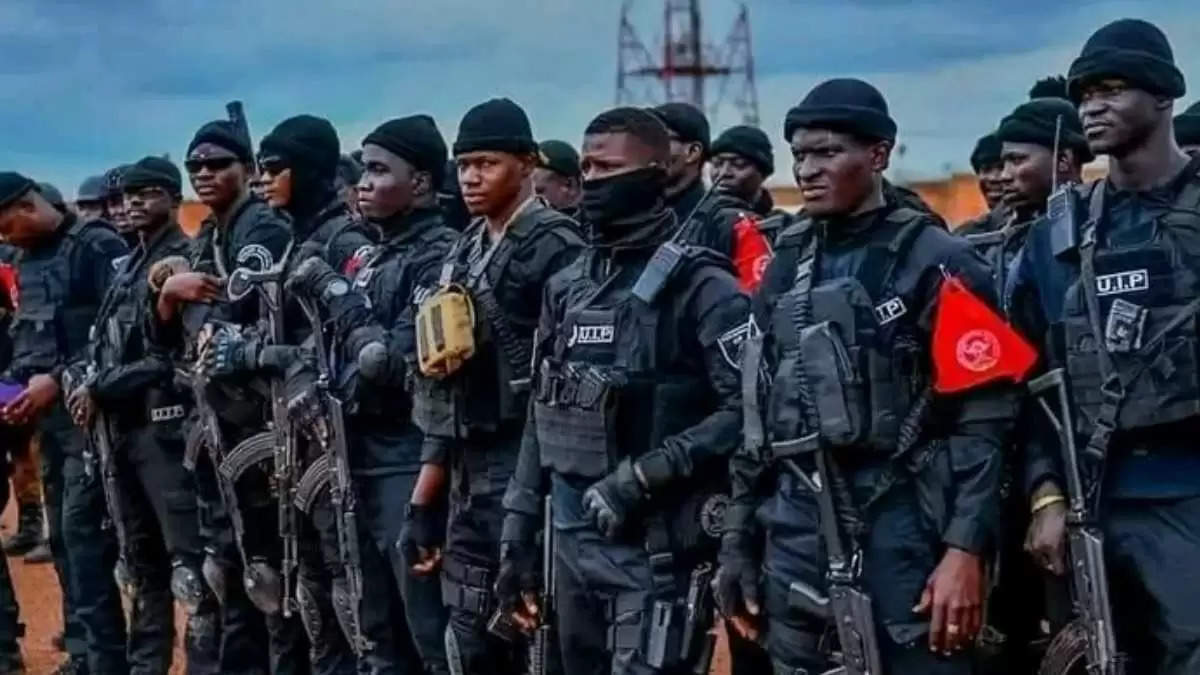Nearly 600 Dead in Al-Qaeda-linked Terrorist Attack in Burkina Faso

A devastating terrorist attack in Burkina Faso on August 24 has left nearly 600 people dead, according to a French intelligence report. The assault occurred in the town of Barsalogho, where attackers linked to the Al-Qaeda-affiliated group Jama’at Nusrat al-Islam wal-Muslimin (JNIM) launched a brutal assault, targeting mostly women and children. This incident, one of the deadliest in the country’s recent history, underscores the growing insecurity in Burkina Faso, which has been engulfed in jihadist violence for years.
A Brutal Assault on a Vulnerable Town
The attackers, mounted on motorcycles, stormed the outskirts of Barsalogho, a town in northern Burkina Faso, where they launched a coordinated assault on civilians. Eyewitnesses described scenes of mass panic and terror as villagers, many of them women and children, attempted to defend themselves by digging trenches. The attackers, however, shot them down indiscriminately. Many villagers lay down and pretended to be dead in a desperate attempt to avoid being shot. The scale of the violence shocked onlookers, and videos from the scene showed the horrific nature of the massacre.
Although the United Nations initially estimated around 200 deaths, JNIM, the group responsible for the attack, claimed that nearly 300 people had been killed. However, a French government security report suggested that the death toll may have reached up to 600. The attack is considered one of the deadliest in the country’s troubled history and further highlights the extreme violence that jihadist groups have inflicted on Burkina Faso in recent years.
Burkina Faso’s Growing Crisis
Burkina Faso, a landlocked country in West Africa, has been facing an escalating jihadist insurgency since 2015. The violence initially spread from neighboring Mali, where extremist groups began to gain ground. In recent years, the insurgents, many affiliated with Al-Qaeda and the Islamic State, have carried out numerous attacks, exacerbating an already fragile state and leading to widespread displacement and a humanitarian crisis.
The conflict in Burkina Faso has resulted in the deaths of over 20,000 people, with more than two million displaced from their homes. The country has struggled to cope with the growing insurgency, particularly following a series of military coups in 2022, which further weakened the government’s ability to combat extremist groups effectively. The government’s response has been criticized for being insufficient in protecting civilians and maintaining order.
The Role of JNIM and Al-Qaeda
The group behind the attack, Jama’at Nusrat al-Islam wal-Muslimin (JNIM), is a known affiliate of Al-Qaeda operating in the Sahel region of Africa. JNIM has been linked to numerous deadly attacks across Burkina Faso, Mali, and Niger, where it seeks to impose a strict interpretation of Islamic law and destabilize governments. The group has also carried out kidnappings, bombings, and ambushes on security forces and civilians, contributing to the region’s ongoing turmoil.
The rise of extremist groups in the Sahel has been fueled by a complex mix of poverty, political instability, and ethnic tensions, along with the influence of militant ideologies from both Al-Qaeda and the Islamic State. JNIM and other jihadist groups have taken advantage of these conditions to expand their influence and carry out deadly attacks.
International Response and Ongoing Crisis
International efforts to combat extremist violence in Burkina Faso and the wider Sahel region have thus far yielded limited success. While regional and international forces, including French and UN peacekeeping missions, have sought to counter the insurgents, their presence has not fully prevented the spread of violence. The situation has become even more dire as Burkina Faso has experienced political upheaval in recent years, with successive military coups weakening the government’s capacity to respond effectively.
The August 24 massacre in Barsalogho marks a grim milestone in Burkina Faso’s ongoing crisis. As the country continues to grapple with insurgent violence and the consequences of political instability, the international community faces increasing pressure to find effective solutions to address the jihadist threat in the Sahel.
The attack also highlights the severe humanitarian impact of the conflict, as thousands of civilians are forced to flee their homes, often into already overcrowded refugee camps. As the violence continues, the need for increased international aid and coordinated efforts to combat extremist groups becomes more urgent.
Looking Ahead
As Burkina Faso struggles to stem the tide of violence, the international community must continue to offer support to the country’s security forces and humanitarian organizations. While military interventions are essential in the short term, long-term solutions will require addressing the underlying causes of extremism, including poverty, governance issues, and regional instability. Without these efforts, Burkina Faso may continue to face an uncertain future, with the threat of extremist violence looming large over the country’s fragile peace.
--

